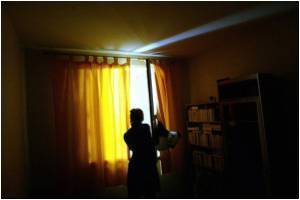Negative moods can activate certain mechanisms in the body that result in up-regulation of inflammation and again, inflammatory substances bring about changes in the brain that cause major depressive disorder, according to a study published in the journal Biology of Mood & Anxiety Disorders. Thus, pathways between inflammation and depression are bi-directional.
Systemic disorders contribute to the mental health of the patient. Depression can reduce the functional parameters of immune system. Meanwhile innate, non-specific inflammation is related to depressed moods. Chronic age-related systemic diseases can cause reasons for morbidity of depression in advanced age groups.Inflammation is an immune response to any pathogens or tissue damage mediated by macrophages which are large white blood cells involved in the body’s defense mechanism. These release pro-inflammatory cytokines that causes inflammatory response.
Depression is a mental disorder with commonly seen symptoms such as loss of interest, low energy, disturbed sleep or appetite and poor concentration.
Pro-inflammatory cytokines such as interleukin (IL)-6, IL-1b, and especially, tumor necrosis factor (TNF)-alpha are known to have effects on depressed moods. Animal studies have shown that peripheral pro-inflammatory cytokines could penetrate the blood brain barrier and stimulate the production of central pro-inflammatory cytokines that regulates the moods. When humans were administered immune stimulating endotoxins that cause low-grade inflammation, episodes of major depression was recorded. Hence increased level of cytokines in blood is related to the symptoms of depression.
Negative mood causes high level of circulating pro-inflammatory cytokines. Depression activates the hypothalamic-pituitary-adrenal axis that leads to release of cortisol, which aggravates sympathetic stimulus (the fight or flight response) and reduces parasympathetic stimulus (the rest and digest response). This increases pro-inflammatory cytokines in blood which then cause inflammation in the body.
Hence this is a complex feedback network involving central nervous system, endocrine system and immune system. These act in modulation of peripheral inflammatory response to maintain peripheral homeostatic balance.
Source-Medindia















